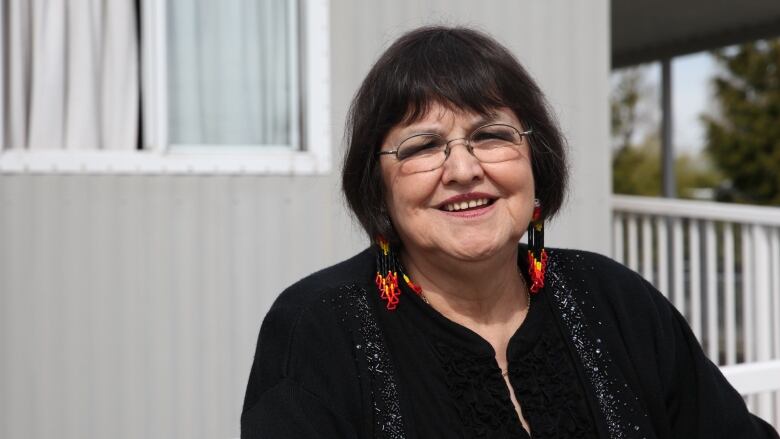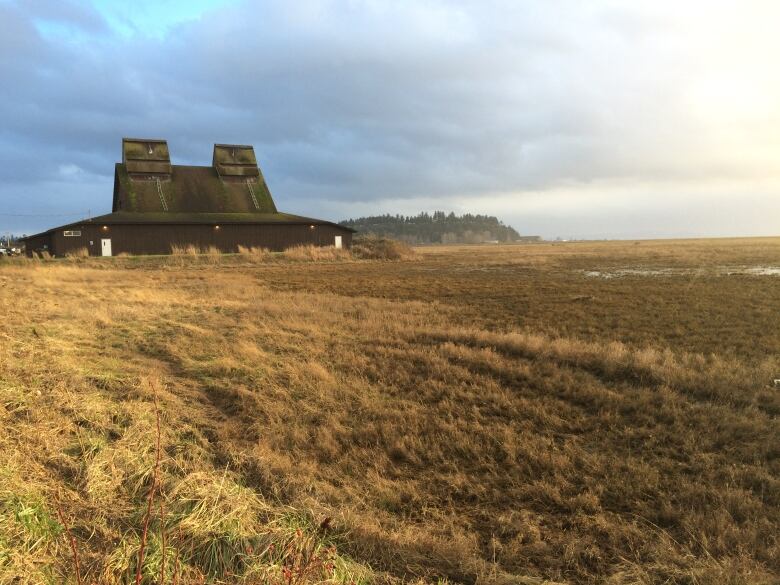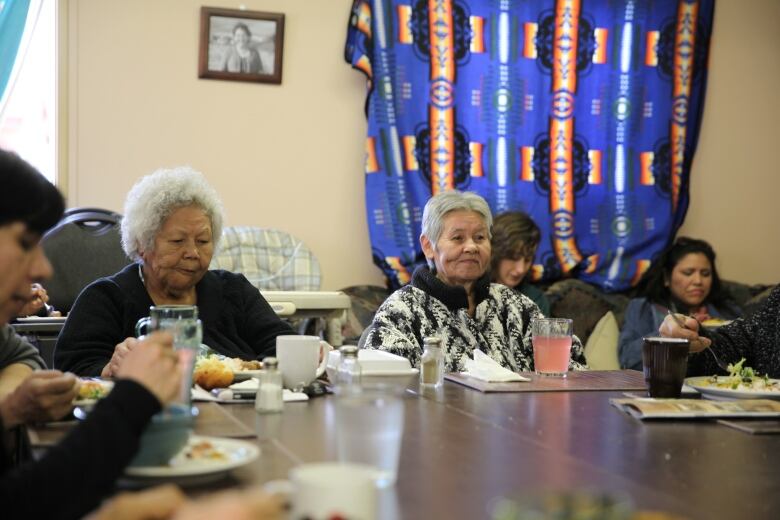Tsawwassen First Nation's new legislative seat eyed by elders
Elders call for new seat in Tsawwassen First Nation legislature to be reserved for elder

Elders are hoping to have a strongervoice in the governance of the Tsawwassen FirstNation in B.C.
The Tsawwassen First Nation (TFN) has been governed by a 13-member legislaturesince its historic 2009 treaty. Next year, a new seat will be added to the Tsawwassenlegislature due to a rapidly growing population.
Elder Ruth Adams hopes the government will consider reserving that position for anelder.
"We've got enough young ones in that legislature so I think we need an old person inthere," said Adams.
"Somebody who has the history."
Adams is an energetic septuagenarian with piercing dark eyes that have watched hercommunity live through hard times and the triumph of the treaty. Just by virtue of herage, she is a rarity on the Tsawwassen First Nation.
Adams says the Tsawwassen First Nation has only about 15 elders.
A youthful nation
The 472-member Tsawwassen First Nation is getting progressively younger, reflecting atrend seen across Canada among First Nations populations.
The TFN government says the growth of its young population base is the principalreason the population has increased by more than 100 since the 2009 treaty.
As of April 2015, 52 per centof the population of Tsawwassen First Nation is under 25 almost twice the national rate.
The TFN constitution calls for the legislature to be expanded by one seat whenever thepopulation increases by 100.
So far, the government hasn't considered reserving the new seat for any particulardemographic group, saidTFN's 25-year-old chief, Bryce Williams.

"No matter what, it's going to be a different voice, whether it's an elder or anothercommunity member. We're all happy to have another voice to speak for the communityand for the people."
But Tsawwassen elder Shirley Larden says the problem is that elders don't haveenough of a voice in the community.
Larden thinks a dedicated elders' position in the TFN legislature would be a good idea"if [the elders']decisions were respected," she said.
"We've had a series of young chiefs. If there's a movement byyoung people, it usuallyends up going ahead."
Loss of language and culture
Adams and Larden often participate in TFN's bi-weekly elders' luncheon.
Every Tuesday and Thursday, elders gather for a hot lunch at the Elders' Centre. Theysit together around a large table, eating salmon, telling stories and sharing the latestgossip.
The centre also hosts language lessons on Wednesday evenings. The Tsawwassenformerly spoke Hun'qumi'num, a Coast Salish dialect, but there are no fluent speakersleft.

The loss of language and culture is a legacy of the residential school system and otherevents that occurred in the 20th century. The Tsawwassen longhouse was demolishedby the B.C. government in 1958 to make way for the nearby B.C. Ferries Terminal.
"The longhouse was taken away, the church was taken away so Tsawwassen FirstNation had no beliefs for a long time," said Adams.
"And all of the elders died. [The TFN government]didn't know any better that theyneeded an elder in there. They didn't go against it. They just didn't know that theyneeded one."
Adams says the remaining elders represent a critical link to Tsawwassen's history andculture.
The role of the elder
"There needs to be some sort of institutional intervention [in Tsawwassen]to ensurethat elders' perspective is included in decision-making," said former Tsawwassen chiefKim Baird.
Elders have long held a mentorship role in many First Nations communities, passingdown history and culture to future generations and providing guidance to communityleaders.
Whenever an elder speaks up, you listen.- Elder Ruth Adams
"I don't know if that's expressed properly anywhere, that special stewardship role of wisdom and knowledge," said Baird.
She saidTFN could give elders a greater voice through direct consultation or throughthe formation of an advisory body.
Another self-governing First Nation in B.C., the Nisga'a Nation, does include elders in itsgovernance structure. A four-member Council of Elders is appointed by the Nisga'agovernment.
The council is led by a chairperson an elder elected by all Nisga'acitizens.
The council's mandate is to provide guidance and interpretation of Nisga'a traditionallaws and practices.
Chief Williams said he's interested in researching the Nisga'a model and learning abouthow the council's interactions and decisions affect Nisga'a governance. He concedesinvolving the elders on some level in Tsawwassen could be beneficial.
"I think it would be valuable I'm open to different ideas that might be brought to thetable in terms of involvement of elders in the governance structure."
Engaging other elders
"The one thing I've learned is in our tradition you don't force things," said Adams.
Although Adams would like the new seat on the TFN legislature to be reserved for anelder, she thinks it needs to happen organically.
She plans to talk about the issue at the elders' luncheon so the other elders can weighin. Adams says the luncheon is where other elders feel most comfortable giving voice totheir opinions.
"That's when they speak up and I'm happy for that," she said.
Even if TFN decides to create a dedicated elders' position in the legislature, thechallenge may be in persuading other elders to run for the position.
"They are not very public and they don't seem too likely to be involved in [government],"says Adams. "But that makes it more important for me to keep going."
Williams plans to reflect on the matter and discuss it with his colleagues in thelegislature.
"Of course, elders have a lot of valuable information and ideas," he said.
"Whenever an elder speaks up, you listen."
Theseries "siylexwe: Stories of Elders and Seniors"isproduced in partnership with the Reporting in Indigenous Community course at UBC's Graduate School of Journalism.












_(720p).jpg)


 OFFICIAL HD MUSIC VIDEO.jpg)
.jpg)



























































































